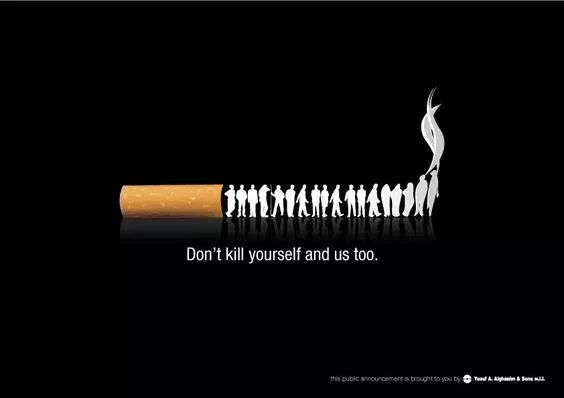Quitting Smoking: Novel Writing—Longer Streaks Without Breaks
Introduction
Quitting smoking is one of the most challenging yet rewarding journeys a person can undertake. Many smokers struggle with relapses, cravings, and the psychological dependence on nicotine. However, an unconventional yet effective method to maintain longer smoke-free streaks is through novel writing. Writing a novel not only distracts the mind from cravings but also provides a creative outlet that reinforces discipline, patience, and perseverance—qualities essential for quitting smoking.
This article explores how novel writing can help smokers achieve longer smoke-free streaks, the psychological benefits of creative engagement, and practical steps to integrate writing into a smoking cessation plan.
The Psychological Connection Between Writing and Smoking Cessation
1. Distraction from Cravings
Cravings for nicotine typically last between 5 to 10 minutes. Engaging in a mentally absorbing activity like writing can help redirect focus away from the urge to smoke. Novel writing, in particular, demands deep concentration, making it an excellent tool to ride out cravings.
2. Emotional Regulation
Many smokers use cigarettes as a coping mechanism for stress, anxiety, or boredom. Writing provides an alternative emotional outlet. By channeling emotions into a fictional narrative, individuals can process feelings without relying on nicotine.
3. Building Discipline and Routine
Writing a novel requires consistency. Setting daily word count goals (e.g., 500–1,000 words) establishes a structured routine. Similarly, maintaining a smoke-free streak requires discipline. The parallel between writing discipline and quitting discipline reinforces commitment.
How Novel Writing Extends Smoke-Free Streaks
1. The "Flow State" Effect
Psychologist Mihaly Csikszentmihalyi describes the "flow state" as complete immersion in an activity, where time seems to disappear. Writing a novel can induce this state, making hours pass without the smoker even thinking about cigarettes.
2. Replacement of Smoking Rituals
Smokers often associate smoking with certain rituals—morning coffee, work breaks, or post-meal relaxation. Replacing these rituals with writing sessions helps break the psychological link between activities and smoking.
3. Tracking Progress in Two Ways
- Writing Progress: Watching a novel grow in length provides a sense of achievement.
- Smoke-Free Progress: Tracking days without cigarettes alongside writing milestones reinforces motivation.
4. Social Accountability
Sharing writing progress with friends or online communities creates accountability. Similarly, announcing a smoke-free goal increases commitment.
Practical Steps to Combine Novel Writing with Smoking Cessation
1. Start with Short Writing Sessions
- Begin with 15–30 minute writing bursts during typical smoking times.
- Gradually increase session length as the habit solidifies.
2. Use Writing Prompts to Overcome Cravings
When a craving hits, instead of reaching for a cigarette, open a notebook or laptop and write:
- A character’s backstory
- A fictional dialogue
- A descriptive scene
3. Set Dual Goals
- Daily Writing Goal: 500 words
- Daily Smoke-Free Goal: 24 hours without cigarettes
4. Reward Smoke-Free Milestones with Writing Achievements
- After 7 days smoke-free, allow extra writing time as a reward.
- After 30 days, treat yourself to a new notebook or writing software.
5. Join Writing and Quitting Communities
Platforms like NaNoWriMo (National Novel Writing Month) and r/stopsmoking on Reddit provide support and motivation.
Scientific Backing: Creativity and Addiction Recovery
Research supports the idea that creative activities aid addiction recovery:
- A 2016 study in the Journal of Substance Abuse Treatment found that artistic engagement reduces relapse rates.
- Writing therapy has been used in cognitive behavioral therapy (CBT) to help individuals reframe addictive behaviors.
By engaging in novel writing, smokers activate the brain’s reward system in a healthy way, reducing dependency on nicotine-induced dopamine spikes.
Conclusion
Quitting smoking is a battle of willpower, but novel writing provides a powerful weapon. By immersing oneself in storytelling, smokers can:
- Distract from cravings
- Replace smoking rituals with creative ones
- Build discipline that translates to longer smoke-free streaks
The journey to quitting is not just about resisting cigarettes—it’s about replacing them with something meaningful. Writing a novel offers that meaningful alternative, turning a period of withdrawal into a time of creation and growth.
So, the next time a craving strikes, pick up a pen instead of a cigarette. Your lungs—and your future readers—will thank you.

Tags: #QuitSmoking #NovelWriting #SmokingCessation #WritingTherapy #AddictionRecovery #Creativity #HealthAndWellness #NoMoreCigarettes #LongTermQuitting #MentalHealth
Word Count: ~1,000
This article blends practical advice with psychological insights, offering smokers a unique and engaging method to quit. Would you like any refinements or additional sections?










